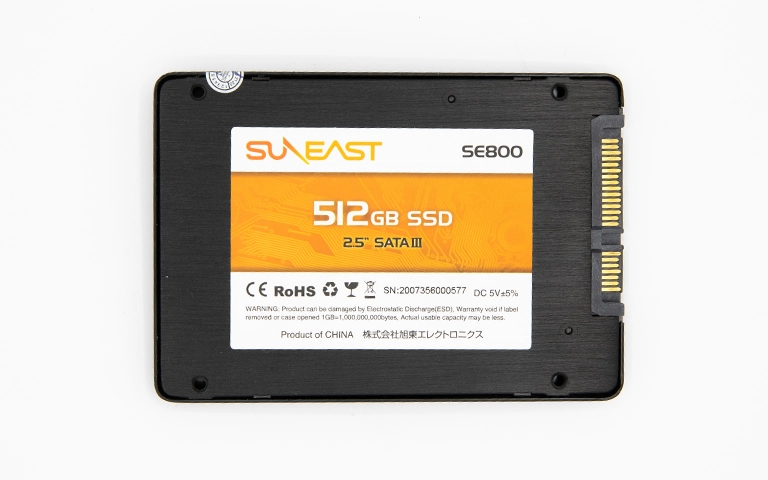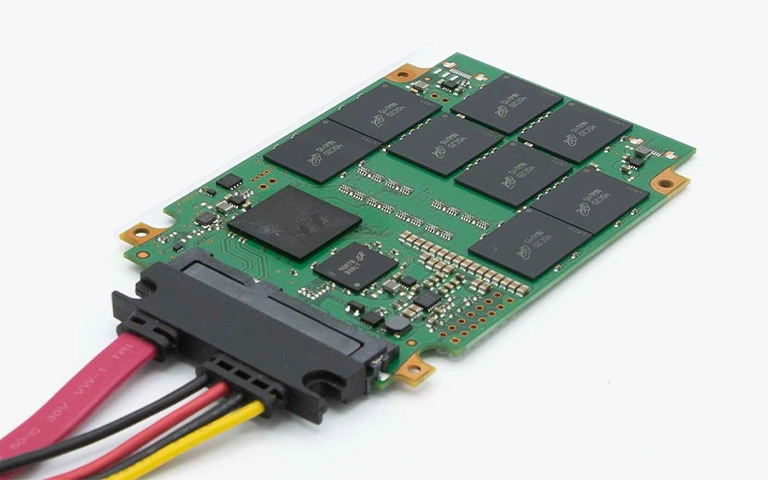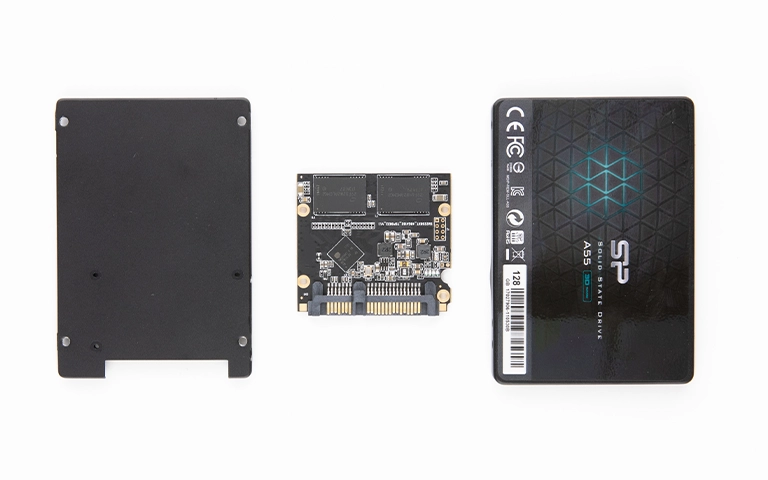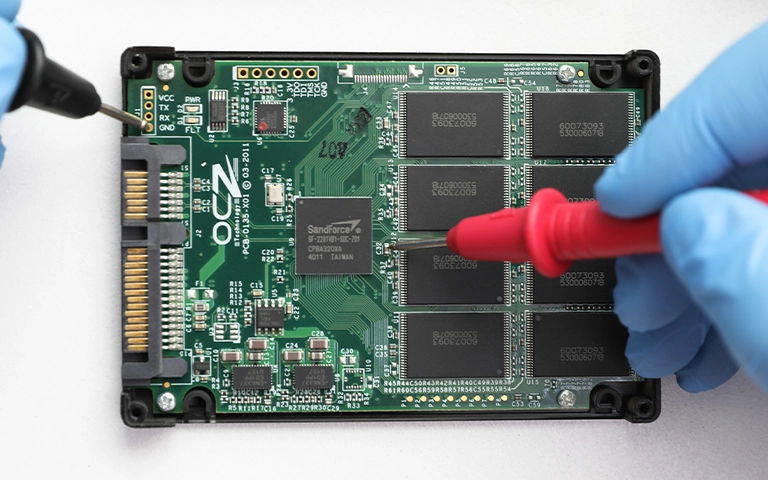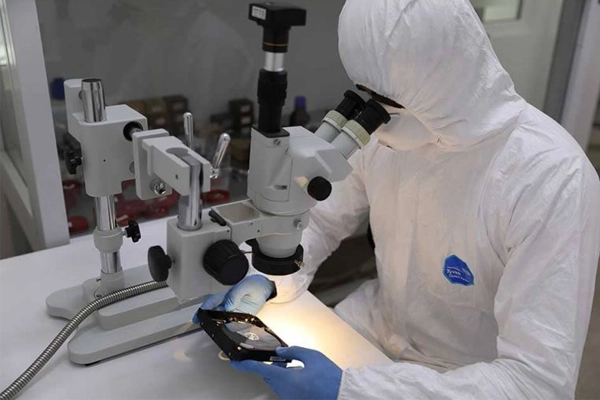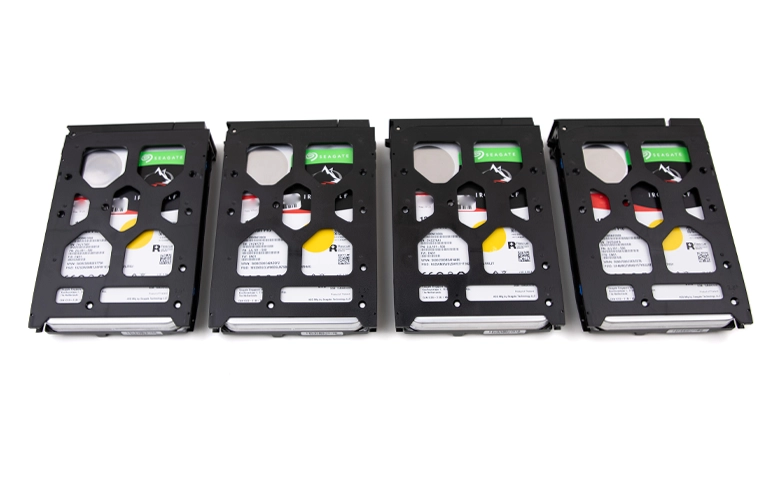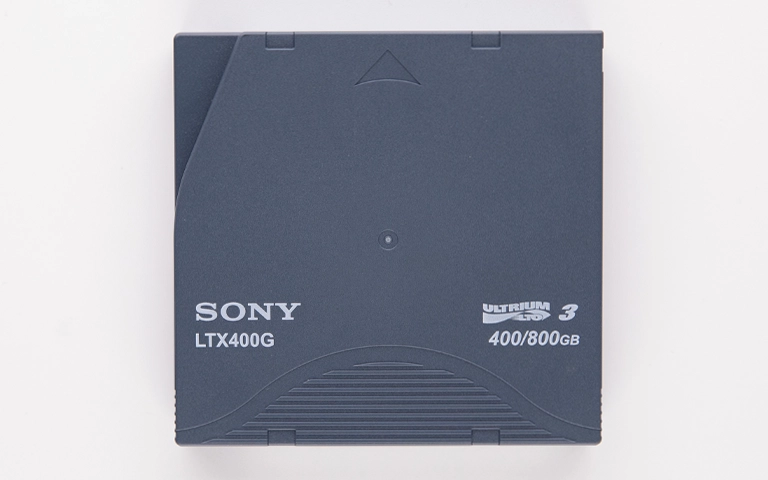If your Solid-State Drive (SSD) has failed, your primary concern is likely the data stored on it. A critical question arises: can data be recovered from SSD devices after such failures?
In many situations, yes, SSD data recovery is possible. However, SSD technology differs significantly from traditional Hard Disk Drives (HDDs). These differences introduce unique complexities often requiring specialized knowledge and tools for successful data retrieval.
Why Recovering Data from SSDs is Different
Unlike HDDs that use mechanical parts and magnetic storage, SSDs rely entirely on electronic components:
The SSD Controller: The Central Hub
This chip is the SSD’s main processor. It manages data placement, error correction, encryption, and NAND longevity. A failed controller is a common reason for SSD failure, often making the drive inaccessible via standard means, complicating efforts to recover data from failed SSD units.
SSD Firmware: The Operating Instructions
Firmware is the essential software embedded within the controller. Corruption due to power loss, bugs, or interrupted updates can cause the SSD to fail detection, lock up, or report incorrect information (like 0MB size).
NAND Flash Memory: The Data Storage
Your files are stored on these memory chips. While durable, they have finite lifespans and can degrade or fail over time, leading to data corruption or access issues. Professionals often need to read data directly from these chips.
Is SSD Data Recovery Possible?
Yes, SSD data recovery is possible for many failure types. Controller malfunctions or firmware corruption often require specialized tools to bypass or repair. NAND degradation needs advanced reading algorithms. Electronic component failures (e.g., post-power surge) may involve PCB repair. Physical damage recovery depends on NAND chip integrity.
Common SSD Failure Scenarios & Recovery Outlook
SSDs can fail for various reasons. Here are some common scenarios and what they generally mean for data recovery:
Controller Malfunction
- Symptom: Drive often not detected by BIOS/OS, may show incorrect size.
- Recovery Approach: Requires specialized hardware to bypass or emulate the controller, potentially involving “chip-off” techniques to read NAND directly. Success depends heavily on the controller model and encryption status.
Firmware Corruption
- Symptom: Drive may be detected but inaccessible, stuck in a busy state, or show errors.
- Recovery Approach: Utilizes specific diagnostic modes and tools to repair, reload, or work around the damaged firmware to gain access to the data area.
NAND Flash Degradation/Failure
- Symptom: Read/write errors, slow performance, corrupted files, bad sectors reported.
- Recovery Approach: Involves advanced reading algorithms to extract data from weak or failing memory cells, error correction, and data reconstruction.
Electronic Component Failure
Symptom: Drive completely dead, no power, often caused by power surges.
Recovery Approach: May involve repairing components on the Printed Circuit Board (PCB). If key chips like the controller are damaged, more complex recovery methods are needed.
Physical Damage
Symptom: Visible damage from drops, liquid spills, bent connectors.
Recovery Approach: Depends on the extent of damage. May involve PCB repair or chip-off techniques if main components are intact but connections are broken. More: damaged SSD recovery.
Emergency Data Recovery Services
Unexpected data loss? Whether it’s a crashed system, failed storage device, or accidental deletion, our 24/7 emergency recovery service ensures priority assistance to retrieve your critical data.
Key Factors Determining SSD Recovery Success
Whether your data can be recovered depends on several critical elements:
- The Exact Failure: Some failures are more complex than others.
- Drive Model and Technology: Recovery techniques vary based on the specific controller and NAND type.
- Encryption: Hardware or software encryption adds a significant layer of complexity. Recovery requires both fixing the drive issue and handling decryption (requiring user credentials).
- TRIM & Garbage Collection: These features optimize SSD speed but make recovering accidentally deleted files very difficult. They generally don’t impact data lost from drive failure until after repair. This impacts attempts to recover deleted files from SSDs.
- Condition of NAND Chips: Severely degraded or physically damaged chips can make recovery impossible.
- Actions Taken After Failure: DIY attempts can worsen the situation.
The Risks of Attempting DIY SSD Recovery
Trying consumer tools on failed SSDs is highly discouraged:
-
Permanent Data Loss: Software isn’t for hardware/firmware failures; can stress failing NAND/controller.
-
Firmware Damage: Attempting updates on unstable drives can permanently “brick” them.
-
Physical Harm: Opening risks ESD; no user-serviceable recovery parts inside.
-
Data Overwriting: Some processes might write data, overwriting needed files.
-
Delaying Expert Help: Allows potential deterioration. Understanding these DIY SSD recovery risks is crucial.
Get a Free Consultation.
Our recovery experts are ready to assess your device and guide you through the safest path to recovery. Fill out the form to get started.
"*" indicates required fields
Immediate Steps If Your SSD Fails
If SSD failure is suspected and data is needed:
Power Off Safely: Shut down/disconnect immediately. Continued power risks worsening issues.
Do Not Experiment: Avoid software utilities, disk checks, recovery tools, firmware updates.
Avoid Physical Tampering: Do not open drive casing (risks contamination/ESD).
Seek Professional Evaluation: Contact PITS Data Recovery. Expert diagnosis is the safest path.
PITS Data Recovery's Approach to SSD Data Recovery
Successfully recovering data from complex SSD failures demands specialized expertise and technology. At PITS Data Recovery, we provide:
Cutting-Edge Tools
We utilize industry-leading hardware and software specifically designed for SSD recovery. These tools allow direct communication with SSD controllers, firmware analysis, and reading data directly from NAND chips – capabilities far beyond standard software.
Deep Expertise
Our engineers have extensive experience with diverse SSD architectures, controller types (Phison, Silicon Motion, Marvell, etc.), encryption methods, and failure patterns across countless models. This knowledge allows us to tailor recovery strategies effectively.
Certified Cleanroom Lab
For intricate procedures like chip-off recovery (physically removing NAND chips), work is performed in our certified Class 100 cleanroom. Discover why a certified cleanroom environment is vital. This prevents contamination and static discharge damage.
Secure, Methodical Process
Our established data recovery process ensures your media is handled securely. We prioritize creating a stable clone or image of your drive before intensive recovery work begins, safeguarding the original device.
Specialized SSD Focus
We have dedicated protocols and resources for solid-state media. Find more on our capabilities on the SSD data recovery service page.
Don't Let Data Loss Ruin Your Business
Minimize business disruption. We retrieve lost data fast, so you can focus on what matters.
Conclusion: SSD Recovery Is Often Possible
SSD failure is concerning, but data loss is not always final. Due to SSD complexities, recovery often requires professional SSD recovery. Understanding issues, avoiding risky DIY steps, and promptly engaging expert help offers the best chance to retrieve files. Specialized tools and expertise frequently overcome challenging SSD failures.
Frequently Asked Questions
Is SSD data recovery harder than HDD recovery?
Often, yes. While HDDs have mechanical challenges, SSD failures frequently involve complex controller issues, firmware corruption, and intricate NAND chip layouts. Encryption also adds a significant layer of difficulty unique to many SSD recovery scenarios. Specialized electronic tools and knowledge are essential.
If my SSD uses TRIM, does that mean my data is gone after failure?
Not necessarily for data lost due to failure. TRIM primarily affects deleted files by telling the drive those blocks can be erased during idle time (garbage collection). If the drive fails before TRIM actively erases the blocks containing your needed data, that data often remains physically present and potentially recoverable by professionals who bypass the standard OS commands.
Can data be recovered from physically damaged SSDs (e.g., dropped or wet)?
It depends on the extent and location of the damage. If the NAND memory chips and controller are physically intact, even if the circuit board or connector is damaged, recovery is often possible using advanced techniques like chip-off or PCB repair. However, severe damage to the NAND chips themselves can make recovery impossible. Read more about our general approach to damaged SSD recovery.
Why is encryption such a challenge for SSD recovery?
Encryption scrambles data using complex algorithms. If the drive uses hardware encryption tied to the controller, and that controller fails, accessing the decryption key becomes extremely difficult or impossible. Even with software encryption (like BitLocker or FileVault), recovery requires fixing the underlying drive issue first and then applying the correct user password or recovery key. Without valid credentials, encrypted data remains inaccessible.

